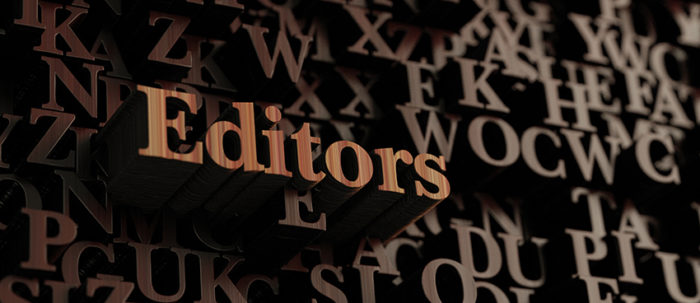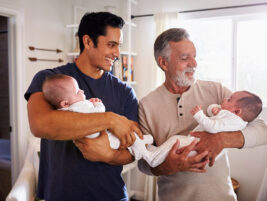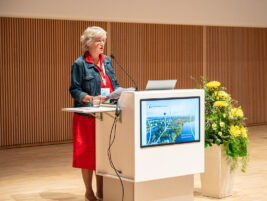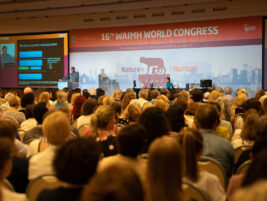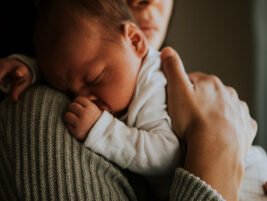Once, nobody knew that infants react to violence, wars, disaster. Today, we know that infants experience post traumatic stress and we know what the signs of post traumatic stress disorder are in the early years., We even know and teach the basic principles of treatment. Still, traumas vary in nature, as well as in extent and WAIMH, as a world organization devoted to the mental health of infants and young children has a role in defining guidelines for assessment and treatment when different kinds of traumas have occurred within the first three years of life.
Infants in societies in chronic conflict with periods of violent exacerbation
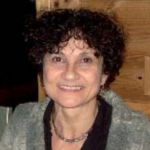
Infants, parents and therapists who live where conflict is chronic and where nations are at war, face daily and complex issues, regardless of their political points of view. In the regional conference held in Ako, Israel last September, WAIMH provided the setting for a high level, professional and respectful dialogue for countries in conflict. In this issue of The Signal, we feature summaries of our Arab and Israeli colleagues’ presentations about their personal and professional experiences as clinicians in an extremely complex geo-political context. The dialogue in Ako did not change the reality, but engendered the recognition of mutual feelings of fear and insecurity, embedded in the history of these two countries. The regional conference gave Arabic and Israeli clinicians the opportunity to explore therapeutic experiences in face of chronic conflict and communicate with one another “at home.” Important to note, few could have travelled to one of our world conferences. WAIMH did not take a political stance, but, quite the opposite, set the stage for parties in conflict to reflect on their mutual suffering and ways to deal with it.
As a mental health professional in a society in war, I personally believe WAIMH has a special role in facilitating communication between all parties who wish to enter into a reflective conversation. This is the first step towards mutual recognition, the opposite of alienation that allows killing.
Four years ago, Sam Tyano and I had the opportunity to organize an Israeli-Palestinian Infant Mental Health Training Course, having in mind that the process itself could serve as a mediator of mutual recognition. The setting was three overnight week-ends at a hotel in East Jerusalem for a 48 hours of training. The participants included 14 Palestinians from Bethlehem, Ramallah, Naplus, and East Jerusalem and 14 Israelis from West Jerusalem. All of them were community child mental health professionals. The explicit goal was to increase basic knowledge about core concepts of psychopathology in infancy, early detection, diagnosis, assessment and therapeutic principles, and specific diagnostic classifications.
We started with formal sharing of knowledge on the first week-end and, by the third one, discussed clinical cases of mutual interest and concern, enablingthe gradual building of trusting relationships within the group. Gradually, through talking about the impact of the war on our little patients and their parents, we started to talk about its impact on ourselves as therapists and individuals. We started as a “group of Israelis” and “group of Palestinians.” We ended as individuals who knew each one’s names. The realization that this process can happen in spite of the ongoing war, is what re-installed hope that hate can be overcome.
Sharing professional/neutral knowledge was the context that facilitated joint sharing of heavy, affect-loaded experiences. Humoristic, mutual jokes became “politically correct”. This training experience taught us how to talk with one another, even in the midst of violent conflicts. Discussion also enabled us to see how each is both the victim and the aggressor. There was no more split between we, the good ones, the victims and they, the bad ones, the aggressors.
Mutual recognition enables the start of re-humanization. Through discussion, we may not perceive the other as an anonymous member of “the enemy group,” but as an individual with capacities for kindness, intelligence, humor and similar wishes for life, growth and love. Political solutions are found when, and only when, each side wants to find them. This phase usually comes after each side is filled with suffering. As we know, suffering is the “best” trigger for therapy and change. Each mental health professional’s own suffering can be channeled into a motivational force to help mutually recognize and re-humanize,at a personal level. This is the first requisite for ending the killing and starting the reconciliation process. Facilitating the re-humanization process is, I think, our primary role as mental health professionals who work and live in conflicted areas…
Several months after the regional conference in Ako and the infant mental health training that brought Israeli and Palestinian clinicians together, Haiti experienced the worst natural disaster in its history where hundreds of thousands of people were killed or maimed. Many, many infants and young children were traumatized. They lost their families in the earthquake and are now orphans. What follows is an important question, “How can WAIMH offer its expertise to help infants and their families in massive, natural catastrophes? “
Infants in massive natural catastrophes
Detection and treatment of infants and families who have been traumatized, is, nowadays, a common practice in Western infant mental health units. Still, when we hear about mass-level disasters, where thousands of infants have survived the catastrophe, but are left orphaned and/or are surrounded by helpless, poor, uneducated and overwhelmed adults, who are themselves in need of leadership, our knowledge needs to be translated for action on a mass level. The Haiti earthquake is a tragic example of such a situation and the WAIMH board is now in the process of considering developing WAIMH guidelines for dealing with the trauma in Haiti. The first step might be to draw on the experiences that WAIMH members have had in responding to trauma in different areas of the world where mass disasters have occurred. Then we might try to contact the WHO and ONU people who are in Haiti and ask how we can help at implementing these guidelines on a practical ground.
Here are the first reports we have collected, more are on their way.
WAIMH members, Sally Stinson and Debbie Weatherston (Michigan Association for Infant Mental Health, Southgate, Michigan, dweatherston@mi-aimh.org)wrote: ” We have two thoughts about concrete help for caregivers of babies orphaned in Haiti and cared for in groups. 1. Baby Stages wheels information about social and emotional development has been translated into French by Antoine. Because Haitians speak French, the translation could be used with child care staff to guide and support their knowledge and care of very young children. 2. The use of soft muslin to wrap a baby securely, to carry the baby, to hold, to feed, to comfort and contain. We might make the muslin wraps available to those who have the tremendous task of comforting babies who have been born to trauma and, metaphorically, offering comfort to the caregivers, too, in the course of training. Perhaps a foundation would fund WAIMH to offer a supportive, guiding presence to caregivers through training, using the information from the wheels and soft muslin to hold babies securely.
Beulah Warren (Sydney, Australia) further clarifies: The wrapping is what we encourage parents of premature babies to use in the early weeks and months. It is also useful for any newborn who has had a difficult birth or hospital experience. No doubt it would be useful for the little ones either born or soon to be born in Haiti. For receiving the drawings that demonstrate this specific kind of swaddling, please address either of us.
An additional idea came from Elisabeth Tuters (The Hincks-Dellcrest Centre, Toronto, Ontario): Learning Through Play (LTP), An international early intervention program for infants, children and their families.
The aim of LTP is to support parents in their ability to stimulate healthy child development. The method consists of two pictorial Calendars (birth to three, and three to six) that depict the sucessive stages of child development, along with brief descriptions of simple play activities that show parents what they can do to promote healthy development. The LTP Calendars are low-literacy, multicultural materials that have been culturally interpreted to ensure widespread acceptability. To date they have been translated into over 20 different languages.
Canadian International Development Agency is showing interest in using LTP in the reconstruction of Haiti. LTP has already been translated into Creole and re-illustrated for Haitians. Child Psychiatrist, Lynne Jones, with the International Medical Corps, is already in Haiti, promoting LTP. Their site is: https://www.hincksdellcrest.org
This is just a beginning. More reports are on their way, such as Marie Rose Moro who is preparing a description of what the Physicians without Borders, have already accomplished in Haiti specifically, and more generally in disasters areas.
Whoever is interested in contributing to the elaboration of WAIMH guidelines for dealing with Infants after mass-scale disasters, please email to WAIMH office (info@waimh.org). We will work on it at the coming conference in Leipzig and in the months that follow.
Vol. 18 No. 1 Spring 2010 – Editor’s Perspective
Authors
Keren, Miri,
the Editor of Signal,
Israel


